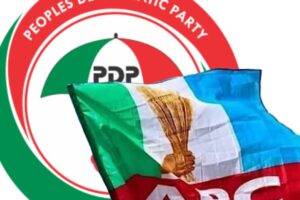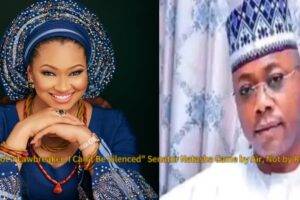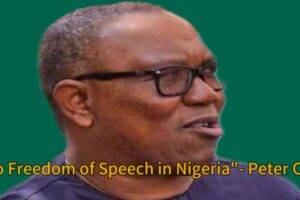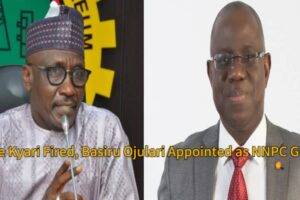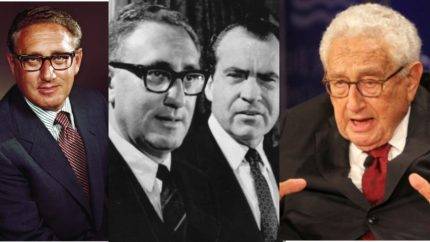Former US Secretary of State Henry Kissinger, a key architect of US foreign policy during the Cold War, has passed away at the age of 100. Kissinger’s Realpolitik approach, characterized by a focus on practical outcomes rather than ideological considerations, defined his tenure as the national security adviser and secretary of state under Presidents Nixon and Ford. Despite his significant role in reshaping global relations, Kissinger remains a polarizing figure, especially due to his involvement in the controversial bombing campaign against Vietnamese communists in Cambodia during the Vietnam War.
Kissinger’s influence extended beyond his official roles, with leaders seeking his counsel for decades after leaving office. The former diplomat’s journey from a German-born immigrant to a prominent figure in American politics included serving in the US Army and teaching international relations at Harvard. His tenure saw the end of the Vietnam War, the opening of relations with China, and the resolution of the 1973 Yom Kippur War in the Middle East. As the world reflects on Kissinger’s legacy, opinions remain divided on the impact of his realpolitik strategies.
Condolences and Tributes Pour In from Global Leaders
Following the news of Henry Kissinger’s passing, a wave of condolences and tributes has swept across the globe, underscoring his influence on international affairs. Former US President George W. Bush led the tributes, describing Kissinger as “one of the most dependable and distinctive voices on foreign affairs.” President Joe Biden received a message of condolence from China’s President Xi Jinping, highlighting Kissinger’s enduring impact on Sino-American relations.
Current US Secretary of State Anthony Blinken acknowledged seeking Kissinger’s advice, emphasizing that Kissinger set the standard for the role and shaped history. Nixon’s daughters, Tricia Nixon Cox and Julie Nixon Eisenhower, reflected on the partnership between their father and Kissinger, which they believe produced a generation of peace for the nation. The global community recognizes Kissinger’s role in pivotal moments of history, from the end of the Cold War to Germany’s reunification, as expressed by German President Frank-Walter Steinmeier.
Assessing Kissinger’s Achievements
While tributes pour in, Kissinger’s legacy remains contentious, with critics highlighting his controversial decisions during the Vietnam War. Accusations of war crimes persist, particularly regarding the bombing campaign in Cambodia. The Realpolitik approach, prioritizing strategic interests over human rights, has been a subject of ongoing debate. The mixed reactions reflect the complexity of Kissinger’s impact on global affairs and the ethical dilemmas associated with pragmatic foreign policy.
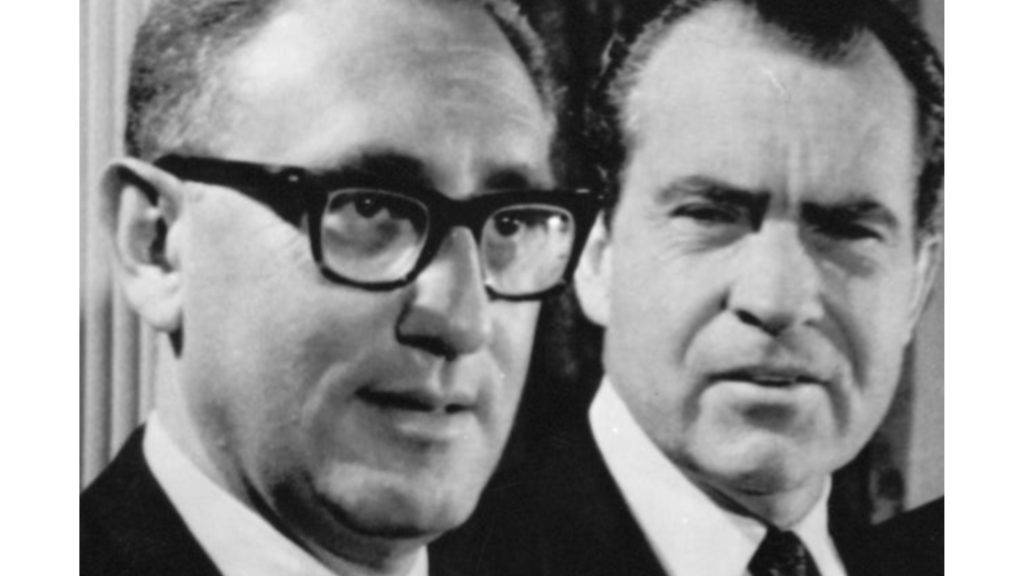
The 1970s saw both diplomatic breakthroughs and military interventions under Kissinger’s guidance. From the historic opening with China to the controversial actions in Southeast Asia, his legacy is a tapestry of achievements and controversies. As the world grapples with the news of his passing, discussions about the ethical dimensions of his decisions and their lasting consequences are resurfacing.
Kissinger’s Enduring Influence: A Legacy of Détente and Diplomacy
Henry Kissinger’s death marks the end of an era, but his influence on international relations endures. Secretary of State Anthony Blinken’s recent consultation with Kissinger highlights the lasting impact of his insights. As leaders, historians, and analysts reflect on Kissinger’s contributions, it becomes evident that his détente and disarmament policies laid the groundwork for the end of the Cold War and the democratic transition in Eastern Europe.
President Frank-Walter Steinmeier’s acknowledgment of Kissinger’s role in Germany’s reunification underscores the far-reaching consequences of his diplomatic efforts. While controversies persist, Kissinger’s legacy is undeniably intertwined with key moments in modern history. The enduring nature of his influence is a testament to the complexities of foreign policy and the indelible mark he left on the geopolitical landscape.
Henry Kissinger’s Controversy and Criticism in US Foreign Policy
Henry Kissinger, the iconic figure in US foreign policy during the Cold War, leaves behind a legacy that is as controversial as it is influential. Even in death, the echoes of his polarizing role resonate strongly. Over the years, Kissinger faced scathing criticism, particularly for his tenure at the State Department. Social media platforms, upon news of his death, became a battleground of opinions, with many labeling him a war criminal responsible for lasting damage worldwide.
Paramount among the criticisms is the accusation that Kissinger prioritized Cold War rivalry with the Soviet Union over human rights, aligning himself with repressive regimes globally. The support for Augusto Pinochet’s regime in Chile stands out as a glaring example. This aspect of Kissinger’s legacy raises questions about the ethical dimensions of US foreign policy during a tumultuous period in global politics.
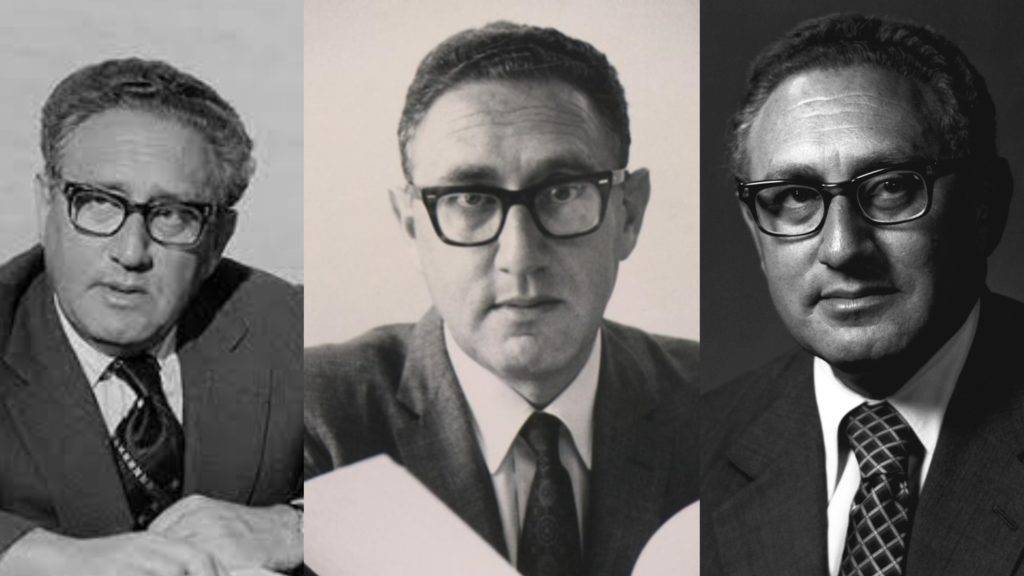
Accusations of War Crimes
One of the most significant accusations against Kissinger revolves around his involvement in the bombing campaign in Cambodia during the Vietnam War. While negotiating with North Vietnam, Kissinger approved a campaign that resulted in the dropping of over two million tons of bombs on Cambodia, a neutral country. This controversial strategy, aimed at cutting off communist supplies, led to the deaths of more than 50,000 civilians and the displacement of millions. The severity of these actions prompted accusations of war crimes, sparking intense criticism both domestically and internationally.
The Rolling Stone magazine captured the sentiment with a headline that did not mince words, referring to Kissinger as a “war criminal beloved by America’s ruling class.” Scholars and critics alike, such as Sophal Ear from Arizona State University, pointed to the devastating impact of Kissinger’s bombing campaign, attributing it to laying the path for the subsequent atrocities of the Khmer Rouge. Despite these grave allegations, Kissinger remained dismissive, referring to his critics as ignorant, showcasing a steadfast demeanor in the face of intense scrutiny.
Controversial Figure and Nobel Peace Prize Recipient
Amidst the controversies and criticisms, Henry Kissinger continued to be a key player in diplomacy. In a move that added another layer of complexity to his legacy, he was awarded the Nobel Peace Prize in 1973 alongside North Vietnam’s Le Duc Tho. This recognition came after negotiating the Paris Peace Accords, a pivotal agreement that aimed to end US involvement in the Vietnam War. Le Duc Tho declined the prize, citing the absence of actual peace in Vietnam. Kissinger’s receipt of the Nobel Peace Prize remains a contentious point, emphasizing the contradictions and challenges in evaluating his contributions to global peace.
As the world reflects on Kissinger’s passing, discussions surrounding his controversial actions and enduring influence persist. The complexities of his legacy underscore the intricate nature of diplomacy and the enduring impact of decisions made during critical junctures in history.
Table of Contents
Discover more from OGM News NG
Subscribe to get the latest posts sent to your email.


